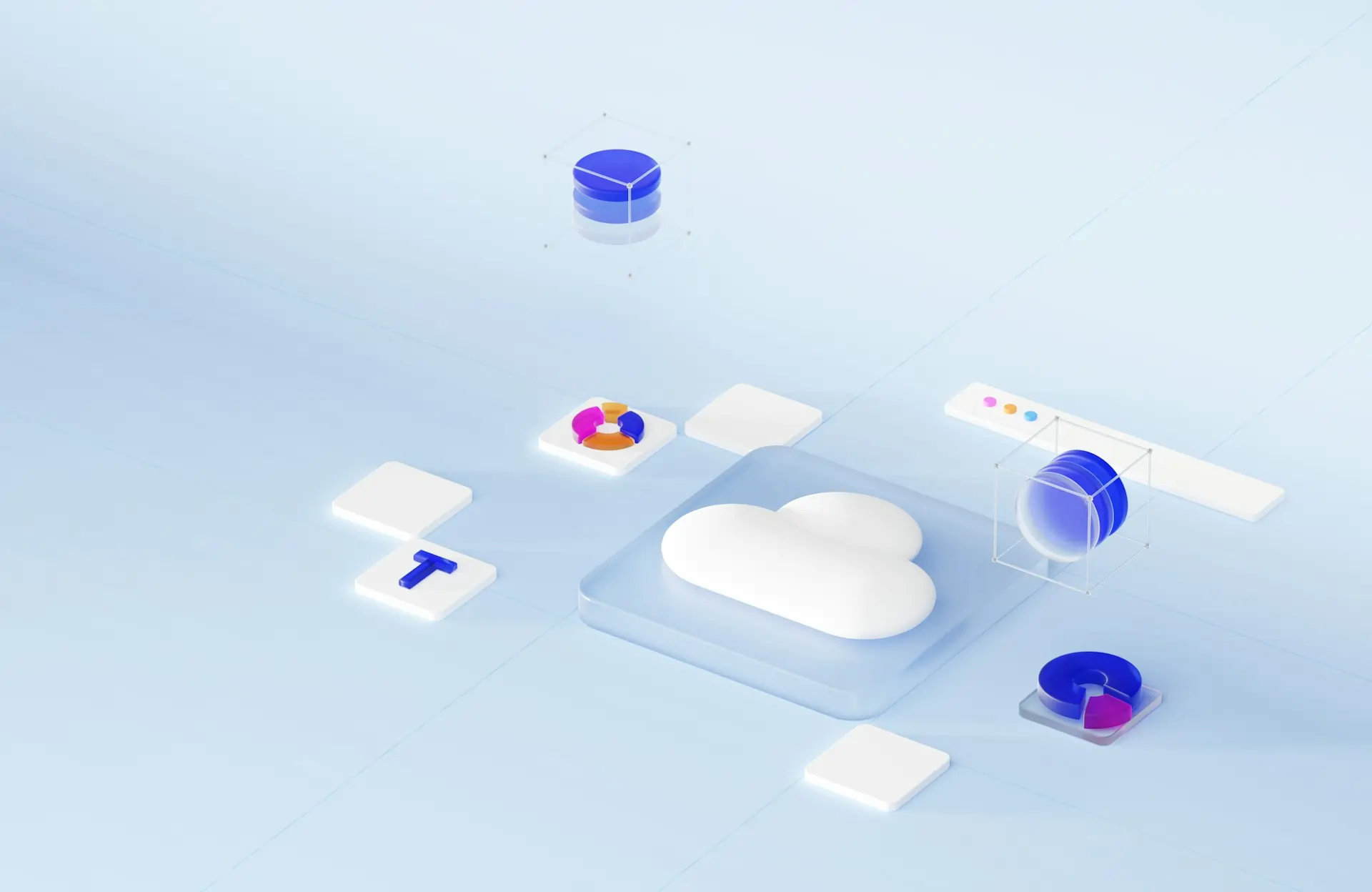In today’s digital world, the demand for cloud-based applications is rapidly increasing. As more businesses move their operations online, cloud software development has become essential. This shift is driving massive growth in the cloud computing market and changing how software is built, delivered, and used.
Chances are, you’re already using cloud apps every day whether it’s for video calls, streaming, or collaborating with your team. Businesses across industries are embracing cloud software development to gain flexibility, boost performance, and cut down on infrastructure costs.
But what exactly is the cloud? What makes an app cloud-based? And how can companies benefit from building apps this way? If you’re asking these questions, you’re in the right place.
What Is the Cloud?
The “cloud” refers to computing services delivered over the internet from remote servers. These services ranging from data storage to processing power are typically offered by providers like AWS, Microsoft Azure, or Google Cloud.
This means businesses no longer need to buy and maintain expensive on-premise servers. Instead, they can rent the exact resources they need and scale them up or down as their needs change. This is one of the major drivers behind the rise of cloud software development.
Thanks to fast internet speeds and widespread access to 5G networks, cloud apps now offer near-instant performance. You can run software that feels local to your device, even though all the heavy lifting is happening on the cloud.
This low latency is a game-changer. It allows apps to respond instantly, support real-time collaboration, and manage large amounts of data with ease.
Why Cloud-Based Apps Are Taking Over
The global shift to remote work and digital services has made cloud-based tools indispensable. Platforms like Zoom and Google Meet helped people stay connected during the pandemic. SaaS products like Netflix, Slack, and Spotify became household names. All of these rely on cloud software development.
By using cloud infrastructure, companies can skip the hassle of managing their own servers. This frees them to focus on innovation and delivering value to their customers.
What Is a Cloud-Based Application?

A cloud-based application is any software that relies on cloud infrastructure to operate. While some apps may use the cloud for limited tasks like file storage or authentication, true cloud apps offload most of their processing and data handling to the cloud.
That’s what sets them apart from traditional or “native” apps.
Cloud apps can be web-based, mobile, or even hybrid. A common type is the web app, which runs entirely in a browser and depends on cloud servers to perform operations. More recently, Progressive Web Apps (PWAs) have gained popularity as they offer an app-like experience with the reach of the web.
Thanks to cloud software development, businesses are now building smarter, faster, and more collaborative applications than ever before.
Benefits of Cloud Software Development
Building applications in the cloud comes with several clear advantages:
- Improved performance: Offloading complex processes to cloud servers reduces the burden on user devices, making apps faster and more efficient.
- High availability: Cloud providers offer redundant systems to ensure apps stay online and accessible.
- Scalability: Businesses can quickly adjust resources to handle traffic spikes without investing in new hardware.
- Easy updates: Developers can deploy updates across all users instantly, without needing local installations.
- Strong security: Top cloud providers invest heavily in protecting data and maintaining system integrity.
All of these benefits make cloud software development a smart choice for organizations aiming to grow and adapt in a rapidly changing environment.
The Cloud Development Process
Cloud software development follows a structured process similar to traditional app development, but it’s optimized for the cloud environment.
Here’s how it usually works:
- Planning and Requirements: Define the problem you’re solving and identify how the cloud can support your goals.
- Architecture Design: Choose the right cloud platform and services for scalability, performance, and cost-effectiveness.
- Development: Use cloud-native tools and frameworks. Teams often rely on DevOps practices, containers (like Docker), and orchestration tools like Kubernetes.
- Testing: Run load tests and security checks in a cloud environment to ensure reliability.
- Deployment: Roll out the application using CI/CD pipelines for faster and safer delivery.
- Monitoring and Maintenance: Track performance, fix bugs, and update features using real-time cloud monitoring tools.
Experienced teams use practices like DevOps and SecOps to build secure, efficient apps. They may also work with platforms like AWS or Google Cloud, depending on your project needs.
At Comcodia, we’ve helped companies across industries turn their ideas into powerful cloud-based solutions using modern technologies and best practices.
Why Businesses Partner with Cloud Development Experts
Not every organization has the in-house talent or resources to manage the complexities of cloud software development. That’s why many turn to expert development partners.
A skilled development company brings technical know-how, a proven process, and experience working across cloud platforms. They can help you navigate challenges, reduce risks, and deliver a reliable product on time.
When choosing a partner, look for:
- Proven experience in cloud software development
- Certifications from cloud providers like AWS or Google Cloud
- A collaborative approach to understanding your business needs
- Transparent project management and communication
Comcodia, for instance, is a certified AWS partner with a track record of helping clients bring scalable, secure cloud applications to life.
Real-Life Cloud App Examples
To see the power of cloud software development in action, take a look at some of these popular apps:
- Miro: A virtual whiteboard that lets teams brainstorm and collaborate from anywhere.
- Figma & Lunacy: Design tools built for real-time teamwork and fast feedback.
- Dropbox & Google Drive: Cloud storage solutions that make your files available anytime, anywhere.
- Flipsnack: A tool that transforms PDFs into interactive flip books using only your browser.
These apps show how cloud software development enables seamless collaboration, scalability, and accessibility core features that are critical in today’s work environment.
Ready to Build Your Cloud App?
Thanks to the flexibility and power of the cloud, developing a modern app is more accessible than ever. Whether you’re a startup or a growing business, cloud technology opens the door to innovation without the upfront infrastructure costs.
At Comcodia, we help businesses identify how the cloud fits into their strategy, design user-centric products, and build scalable apps that drive results. Our team uses DevOps practices and cutting-edge tools to deliver secure, high-performing applications on time.
If you’re thinking about building a cloud app or migrating an existing one to the cloud, reach out to us for a free consultation. Let’s explore how cloud software development can take your idea to the next level.
Frequently Asked Questions
What is cloud-based software development?
Cloud-based software development is the process of building applications using online platforms and tools, instead of relying on your own servers or installing heavy software on local machines. Everything you need—storage, processing power, and development tools—is provided by third-party cloud services, so you can build and scale your software faster and more efficiently.
What does a cloud software developer do?
A cloud software developer designs, builds, and maintains applications that run on cloud platforms. Their job involves working with cloud-based tools and infrastructure to create software that’s secure, scalable, and accessible from anywhere. Whether it’s web apps, APIs, or backend systems, cloud developers ensure everything runs smoothly in the cloud.
Is cloud development a good career?
Absolutely. As more companies move their operations to the cloud, the demand for skilled cloud professionals continues to grow. It’s a field that offers strong job security, competitive salaries, and plenty of opportunities for advancement. If you’re looking for a future-proof career in tech, cloud development is a smart choice.
What skills do you need to become a cloud developer?
To succeed as a cloud developer, you’ll need a solid understanding of programming and cloud platforms. Popular programming languages include Python, JavaScript (especially with Node.js), and Ruby. It also helps to learn about cloud services like AWS, Azure, or Google Cloud, along with tools for containerization (like Docker) and deployment automation.


